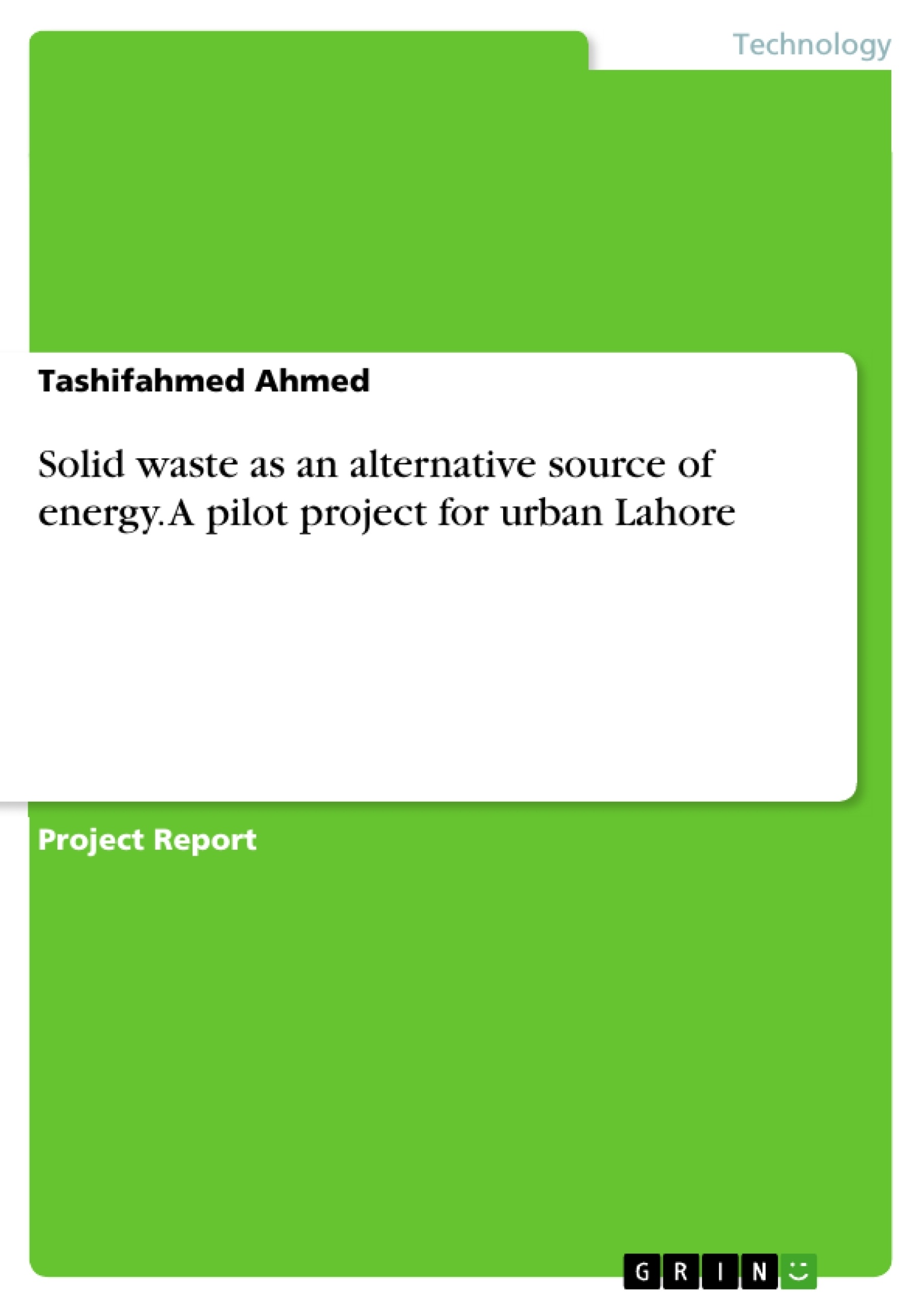Solid waste management has emerged as one of the most important entity in the recent past. It is the proper system of collecting waste till its proper disposal. Most developed countries now a days are properly managing their solid waste to generate electricity and other sources of energy. United States and Europe are processing their solid waste up to 32% to 41% respectively. It is the need of the hour that energy deficient developing countries with their huge potential for generating energy from their solid waste to pay heed at this front. Pakistan is the most urbanized country throughout the whole south Asia with 35% of the population resides in urban areas. So there lie huge potential for the production of energy in the form of electricity, biogas, natural gas etc. in Pakistan because according to the Pakistan Environmental Protection Agency (2005) only 51-69% of the generated waste is collected and the rest remains in the streets or collection points....
Inhaltsverzeichnis (Table of Contents)
- Introduction
- Statement of the Problem
- Objectives of the Study
- To evaluate the current solid waste management practices
- To devise an effective solid waste management system that ensures the appropriate disposal of waste
- To use this solid waste as an alternative/renewable source of energy
- To reduce environmental degradation that is done by the inappropriate disposal of the waste
- To provide a cost effective and environment friendly solution to the energy crisis
- Current practices of Solid Waste Management
- Potential of Electricity Generation from Solid Waste of Urban Lahore
- Discounted Cash Flow Analysis of the Project
- Interpretation of the Results (Discounted Cash Flow Analysis)
- Sensitivity Analysis of the Project
- Interpretation (Cost& Benefit Sensitivity)
- Logical Framework Analysis
- Conclusion
Zielsetzung und Themenschwerpunkte (Objectives and Key Themes)
This study aims to develop a sustainable solution for managing solid waste in Lahore, Pakistan, by exploring its potential as a renewable source of energy. The objective is to design an effective solid waste management system that encompasses collection, disposal, and energy generation, ultimately reducing environmental degradation and addressing the energy crisis in the region.
- Solid Waste Management as a Crucial Environmental Issue
- The Potential of Waste-to-Energy Conversion
- Economic and Environmental Benefits of Sustainable Waste Management
- Addressing the Energy Crisis in Pakistan
- The Role of Pilot Projects in Implementing Sustainable Solutions
Zusammenfassung der Kapitel (Chapter Summaries)
The introduction provides a compelling overview of the growing significance of solid waste management, particularly in developing countries like Pakistan. The study highlights the need for efficient waste disposal methods and explores the potential of generating energy from waste. The subsequent chapters delve into the current practices of solid waste management in Lahore, analyzing the challenges and opportunities for improvement. A detailed assessment of the potential for electricity generation from solid waste in Lahore is presented, outlining the estimated waste generation and potential energy output. The study further examines the financial viability of the proposed project through discounted cash flow analysis, sensitivity analysis, and logical framework analysis.
Schlüsselwörter (Keywords)
The study focuses on key concepts such as solid waste management, renewable energy, waste-to-energy conversion, environmental sustainability, economic development, energy crisis, pilot projects, and urban planning. The research delves into the potential of utilizing solid waste as a renewable energy source, analyzing the economic and environmental benefits of sustainable waste management practices in Lahore, Pakistan.
- Quote paper
- Tashifahmed Ahmed (Author), 2015, Solid waste as an alternative source of energy. A pilot project for urban Lahore, Munich, GRIN Verlag, https://www.grin.com/document/334942




